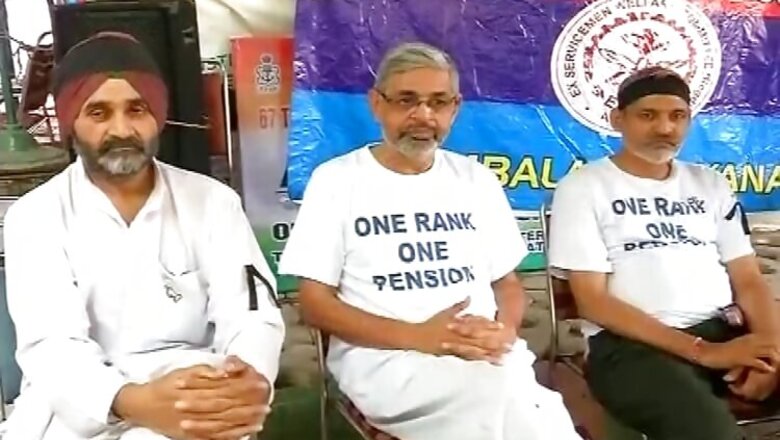
views
Retired defence personnel and war widows have been protesting for the implementation of One Rank One Pension for more than three decades. The agitation gained momentum in the last few months with a group starting protests at Delhi's Jantar mantar and some of then even going on fast-unto-death.
There have been several round of meetings between the government and defence veterans but till now there is no solution.
But what is the demand for One Rank One Pension:
Defence forces are the sword arm of a country and in India 85% soldiers have to retire between 35-37 years to maintain a youthful and fighting force. Defence personnel can also be discharged on account of disability.
Sepoys retiring before 1996 get 82% less pension than one retiring after 2006. An Indian Army Major and equivalent rank in the Indian Navy (Lieutenant Commander) and Indian Air Force (Squadron Leader) retiring before 1996 gets 53% less pension than a Major retiring after 2006.
Until 1973 officers drew 50% of their last drawn salary as pension and junior commissioned officers drew 70% of last drawn salary as pension. But the rule changed after Third Pay Commission's suggestions which was set up in April 1970 with Justice Raghubir Dayal as chairman and gave its report in March 1973.
What does One Rank One Pension means:
- Two military personnel who retired after equal length of service in same rank get equal pension.
- Payment of uniform pension to military personnel irrespective of date of retirement.
- Any hike in pension rates to be automatically passed on to past pensioners.
While the Central government wanted 2011 as base year for implementing OROP, the ex-servicemen wanted the base year as 2014. Now the government has agreed to take 2013-14 as the base year.
While government wanted 2015 as the year of implementation, ex-servicemen wanted the OROP implemented from April 1, 2014. Now the government is willing to implement it from 2014.
Ex-servicemen want revision every year or at least once in two year but the government in in favour of doing it just once in 5 years. This is the biggest hurdle at present.
Ex-servicemen have already compromised on some sticking points. They have agreed to a revision once in two years. Retired Havaldar of Army and equivalent ranks in the Navy and IAF, and lower ranks along with war widows will be given cash.
Personnel who retired as an officer will get bonds with 6% interest. The defence veterans can also accept relaxation of upto three months.
The government has compromised on the base year and moved it from 2011 to 2013-14 while the year of implementation has been changed from 2015 to 2014. While the government started negotiation with once in 10 year revision clause and then offered it once in 5 years.




















Comments
0 comment